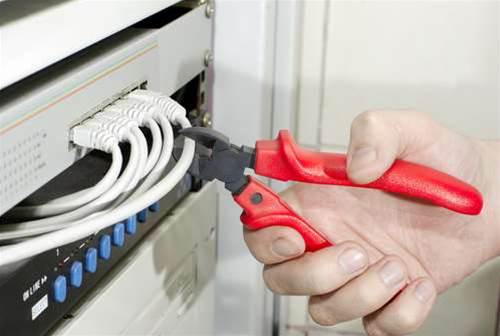Internet users that download pirated material can expect a "three strikes system" in the wake of ACTA even if it isn't legislated, according to one of Australia's top legal authorities on the controversial trade agreement.
As reported yesterday on iTnews, University of Queensland law lecturer Kimberlee Weatherall has written a 37-page comprehensive analysis of the latest leaked draft text of the Anti-Counterfeiting Trade Agreement (ACTA) and concluded that netizens do indeed have a lot to be concerned about.
Despite assurances from Australia's Department of Foreign Affairs and Trade (DFAT) that Australia has no intention of introducing a "three strikes" system compelling ISPs to disconnect users suspected of file-sharing, Weatherall's reading of the leaked draft of ACTA suggests the agreement will likely allow rights holders to achieve the same result through different means.

 |
| Kimberlee Weatherall |
This would free up a rights holder - such as AFACT, for example - from having to prove that an ISP like iiNet had 'authorised' a subscriber's downloads to force the ISP to take active steps to stop the problem.
The ACTA provision "does not appear to require that the intermediary [ISP] itself be held liable, for example, for authorising infringement, in order to justify an injunction," Weatherall said.
Weatherall said that asking an ISP to enforce rights by taking active steps (not just presenting evidence) under "pain of contempt of court" should they refuse "arguably creates a new role for intermediaries as the enforcement arm of the courts."
The unanswered questions - what would a rights holder need to do to prove an injunction was warranted? And what would a rights holder ask for when seeking an injunction?
"The orders might be to send letters, or to cut off access to BitTorrent, or to cease to provide services to customers," Weatherall said.
It is - as she describes in her report - a "possible backdoor route to a three strikes system" - not spelt out by the Government, but levelled by the rights holder with the backing of a court, without any proof the intermediary was engaged in wrong-doing, and directed at an internet subscriber that has no guarantee of a day in court to defend their actions.
"The whole idea of issuing an injunction is that you issue it at a wrong-doer, to prevent them from doing something," Weatherall told iTnews. "They get a hearing, you tell them to stop it.
"But from my reading of the ACTA draft, there is no finding as to whether the ISP is a wrong-doer. Simply because someone else is using their services, they are dragged into court and asked to take action against their subscribers."
Worst case scenario
Weatherall concedes that her fears are of a worst case scenario - first, that the EU proposal is included in the final text; second, that rights holders use the backdoor option; and third, that Australian courts allow the option to be abused.
"Hopefully, the courts won't let this happen in Australia," she said. "I don't think our judges will take lightly the disconnection of a service without the user getting a hearing."
But she wouldn't put it past rights holder groups to try their luck.
"It's clear that if rights holders don't get three strikes set in stone, but it is within the power of courts to issue injunctions, the [graduated response approach using an injunction] becomes an obvious use for that power," she said.
"What I'm concerned about is the potential for rights holders to test this in a court and see what they can get out of it. We can say it's entirely possible because they've done it before - they did it with iiNet.
"I might be talking about ACTA at its worst, but I've got used to imagining the worst in these matters and seeing it happen."
Read Part 1 of this story? How ACTA will make a criminal of you



_(23).jpg&h=140&w=231&c=1&s=0)
_(28).jpg&h=140&w=231&c=1&s=0)
.png&h=140&w=231&c=1&s=0)





 iTnews Benchmark Awards 2026
iTnews Benchmark Awards 2026
 iTnews Executive Retreat - Security Leaders Edition
iTnews Executive Retreat - Security Leaders Edition
 iTnews Cloud Covered Breakfast Summit
iTnews Cloud Covered Breakfast Summit
 The 2026 iAwards
The 2026 iAwards











_(1).jpg&h=140&w=231&c=1&s=0)



